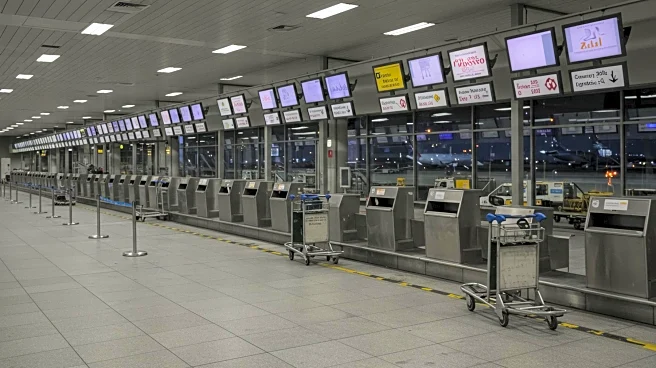What's Happening?
European airline ground staff, represented by unions, have refused to work in Israel, citing moral objections to the ongoing conflict in the region. The French baggage handling company Alyzia, which provides ground services at airports and handles luggage and cargo for Brussels Airlines, has announced it will not work with El Al or any other Israeli airline. This decision was communicated in a letter to management, where union representatives expressed their inability to find words to describe the situation, referring to it as 'madness.' The boycott reflects a broader sentiment among some European workers who are taking a stand against what they perceive as injustices in the region.
Why It's Important?
The refusal of European airline ground staff to work in Israel could have significant implications for international travel and logistics. This action may disrupt airline operations, affecting passengers and cargo services between Europe and Israel. The boycott highlights the growing influence of social and political issues on business operations, as companies and their employees increasingly consider ethical and moral factors in their professional decisions. This development could pressure other companies and industries to take similar stances, potentially leading to broader economic and diplomatic consequences.
What's Next?
The ongoing boycott by European airline ground staff may prompt responses from various stakeholders, including airlines, governments, and international organizations. Airlines affected by the boycott might seek alternative arrangements to maintain their operations, while governments could engage in diplomatic efforts to address the underlying issues. The situation may also lead to increased dialogue and negotiations aimed at resolving the conflict, as well as discussions on the role of businesses and workers in advocating for social and political change.
Beyond the Headlines
This boycott raises questions about the ethical responsibilities of businesses and their employees in global conflicts. It highlights the potential for labor movements to influence international relations and underscores the importance of corporate social responsibility. The situation also reflects a growing trend of workers using their collective power to advocate for change, which could inspire similar actions in other industries and regions.









